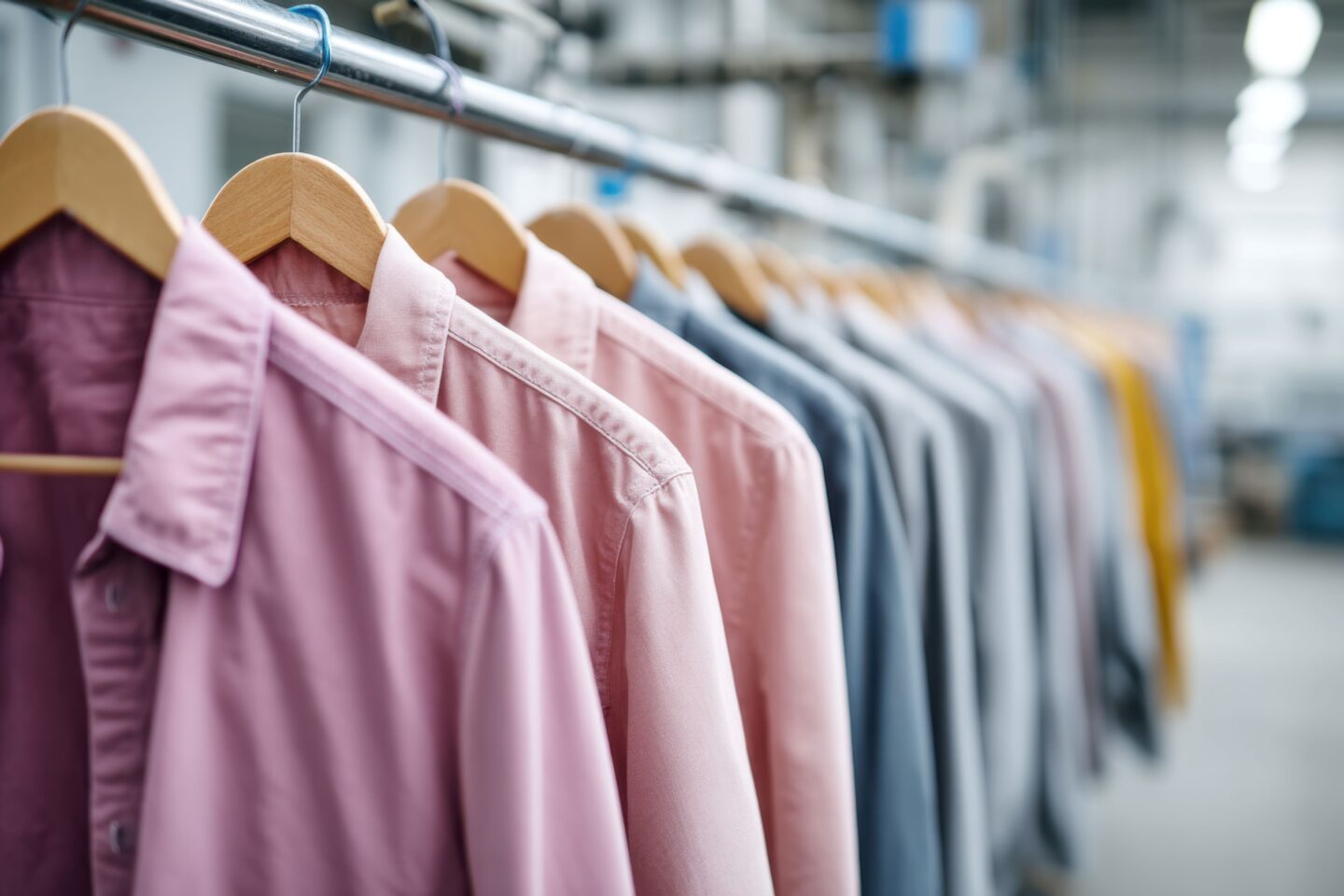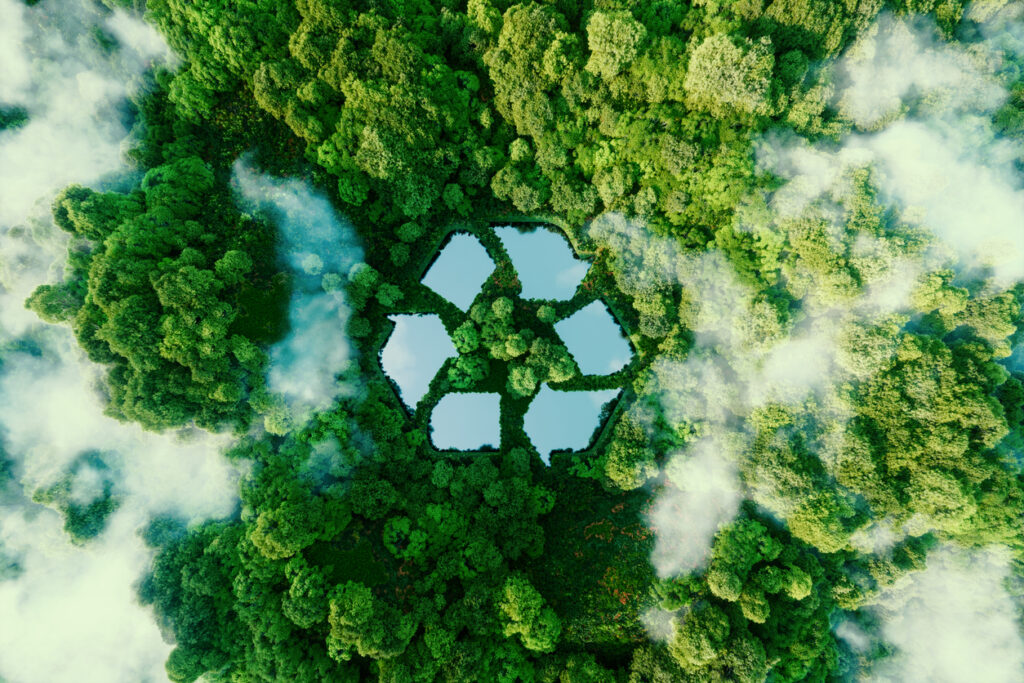Producers & importers
Shape a circular tomorrow, start today.

You take responsibility. We provide the best solutions. Innovation, systemic change and collaboration across the supply chain enable greater reuse and fibre-to-fibre recycling. We are here for all textile producers and importers established in the Netherlands. By uniting the interests of both large and small producers, we ensure a broadly supported approach with tangible impact. Efficiency, transparency and practicality are our guiding principles.
By joining us you actively help building a future-proof EPR system in which everyone contributes fairly to both costs and sustainable solutions. In this way, we truly set the circular textile chain in motion to achieve the EPR objectives.

The benefits of joining
As experts and the large producers’ organisation, we know what works. That is why many producers, importers and service providers have consciously chosen to join Stichting UPV Textiel. This is why.
- Large organisation. Big influence.
Your participation makes an impact. With more than 1,000 producers and importers, we have great leverage.
Towards government, policymakers and the entire chain. - High return. Scalable solutions.
Alone is expensive. Together you can achieve more. With your fee we collectively invest in innovation: recycling pilots, systems and collaborations that you could never carry alone. This way you get ahead of the competition, with more knowledge and lower costs. - Your voice counts.
Through advisory councils, theme groups and working sessions you have your say and help decide. This way we create policies that work in practice. - Reliable and future-oriented.
Clear reports, accurate updates and targeted advice, based on legislation we know from the inside through our national and international network. This way you stay well informed of everything that is happening. - Governance without profit motive.
Every euro works for you. No margin, only results. We are independent and non-profit. Every euro flows back into a transparent system that supports implementation and innovation. - Access to a network that matters.
We share more than knowledge. You are not just joining a foundation; you step into the network that moves the sector forward. At meetings and events, you meet the entire chain, from producer to recycler. - Innovators leading the way.
Frontrunners are given a stage. We share their approach through showcases, expert panels and inspiration sessions. This way we turn their experience into acceleration for the entire sector. - Always know where we stand.
What has been achieved? Where are the opportunities? What’s in it for you? You receive regular updates and can see at a glance what is happening. Clear, actionable reports provide insights that drive results.
Join us now
Signing up is easy:
- Register your details to get started.
- Sign the Textile Management Fee Agreement (TMFA).
- Submit your yearly statement.
Value for money
As a participant, you pay an annual textile management fee and submit a statement of the textiles you put on the Dutch market. This fee makes it possible to organise your EPR obligations collectively.
Fee 2026
The textile management fee for 2026 has been set at €0.24 per kilogram of textiles placed on the Dutch market.
Frequently asked questions
Producers & importers
-
How does the registration process work?
Registering as a producer or importer? Follow the three steps below:
- Sign up: submit your details via this form.
- Sign the Textile Management Contribution Agreement (TMFA): after registration, you will receive an email with the TMFA, an explanation, and the general terms and conditions. We ask you to sign the agreement digitally and return it.
- Submit your statement: provide a forecast of the amount of textiles your company expects to place on the Dutch market that year. After signing the TMFA, you will receive an email invitation to submit a preliminary declaration.
-
Participation and the Textile Management Fee Agreement (TMFA)
The Textile Management Fee Agreement (TMFA) sets out the obligations between the Participants and the Foundation regarding the implementation of the delegated statutory obligations. By signing the TMFA, you confirm your participation in Stichting UPV Textiel. You also agree that the foundation will fulfil the EPR obligations on your behalf and that you will comply with the associated agreements.
Upon receipt of the signed TMFA by Stichting UPV Textiel, you become an official and legally recognised participant, and the foundation assumes your individual responsibilities.
-
Who is a producer and must comply with the obligations?
There are several types of producers. Please visit the Rijkswaterstaat website – Scope of EPR Textiles for the definition and explanation.
-
Which products fall under the EPR Textiles Decree?
The EPR Textiles Decree applies to certain textile products. You can find out which ones on the Rijkswaterstaat website – Scope of EPR Textiles.
-
Which companies are participants?
Many producers and importers have now joined Stichting UPV Textiel. The participant list provides an overview of our members. Participants on this list may also represent sub-participants.
-
Is there a distinction between large and small companies?
We are here for all textile producers and importers based in the Netherlands. By uniting the interests of both large and small producers, we ensure a widely supported approach with real impact.
Statement
-
What should I record in my textile administration?
We have researched best practices for textile administration. A complete textile administration should include the following:
- A process description explaining how you selected the market for which you submit a declaration.
- An Excel document listing these products along with their corresponding weights.
For further information on textile administration, please refer to the Textile Administration Manual in Textool.
-
What should I include in my statement?
By April 1st, you submit a statement of the number of kilograms of textiles you expect to place on the Dutch market that year. Based on this statement, you pay a provisional fee. The following year, by April 1st, you report the actual volumes placed on the market in the previous calendar year. Any difference in fees will then be reconciled.
The Textile Administration Manual in Textool explains exactly how the statement should be completed and how to maintain your administration.
-
Do I submit my statement in kilograms or pieces?
You submit your statement in kilograms.
Textile management fee
-
How is the fee determined?
The board of Stichting UPV Textiel sets the annual budget and the provisional and final rates of the textile management fee. The board consists of executives from Angro, Beddinghouse, Company Fits, Fabienne Chapot, Livera, WE Fashion, Wibra, Zeeman, and INretail/Modint. The textile management fee is largely determined by the costs required to carry out collection and processing to achieve the objectives, as well as to cover the market scope of the producers’ organisation.
-
What is the fee used for?
As a producer/importer, you pay the producers’ organisation a fee to support increased and better-sorted collection, achieve reuse and recycling targets, promote necessary innovation and the transition to circularity, and foster collaboration for sustainability across the supply and processing chain.
-
When do I have to pay the fee?
You pay an annual provisional fee based on the weight of textiles you expect to place on the Dutch market for the first time. The following year, by April 1st, you report the actual volumes placed on the market in the previous calendar year. Any difference in fees will then be reconciled. You only pay for textiles actually placed on the market.
Large companies receive an invoice each quarter for one quarter of the provisional textile fee, while smaller companies are invoiced once a year, in September. The final invoice is issued after the submission of the definitive statement.

Want to join? Start here.
Become part of a growing network of producers, processors and innovators who are making circularity a reality.